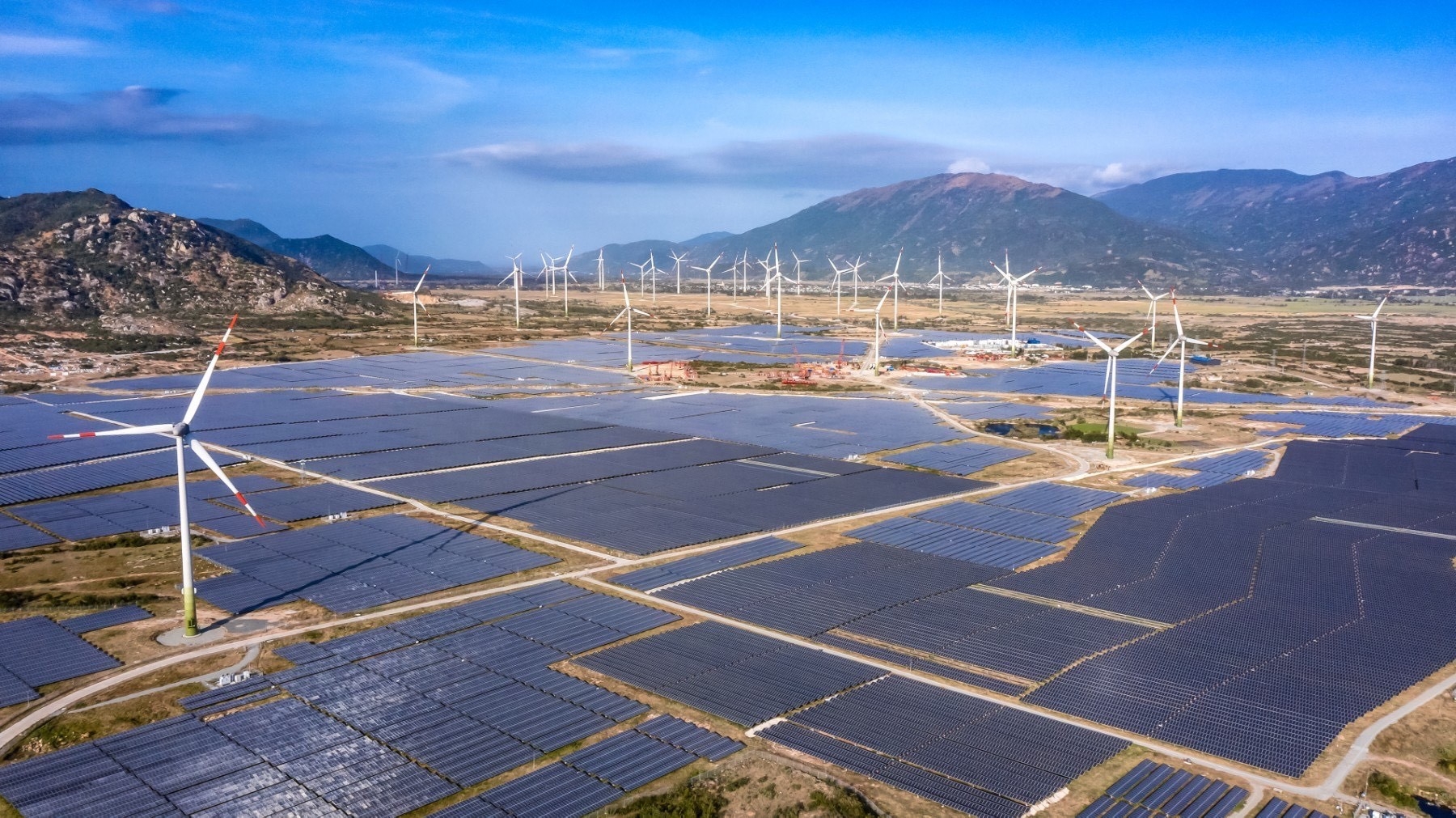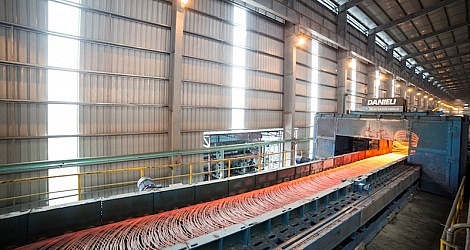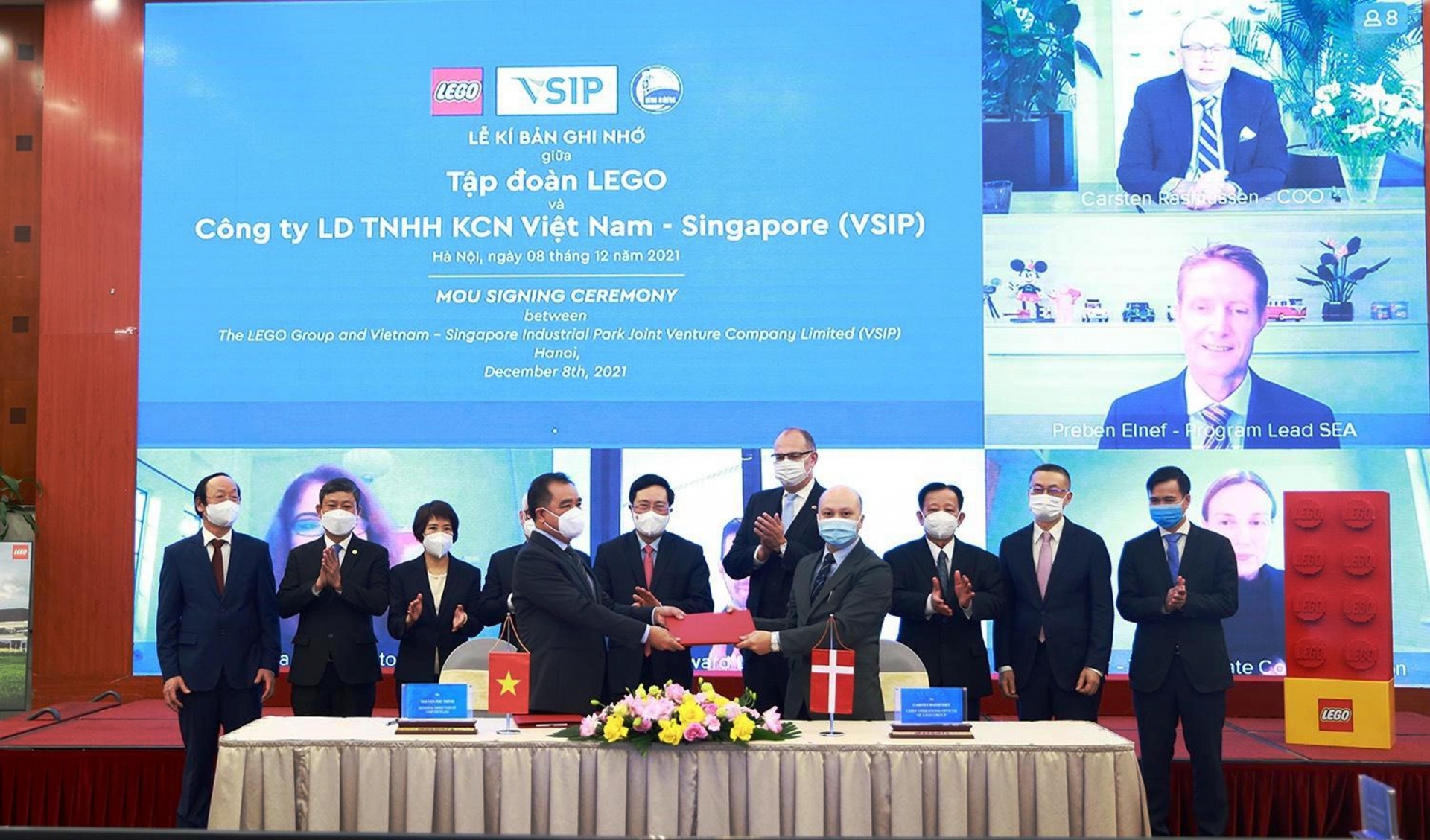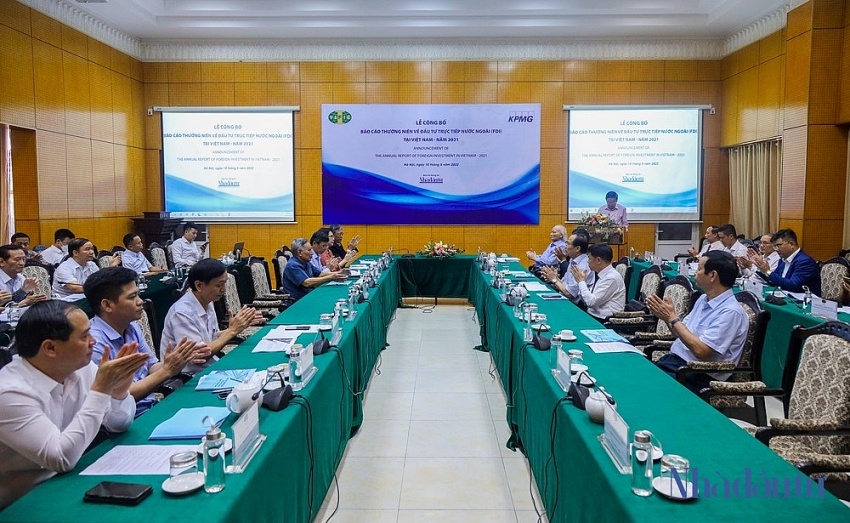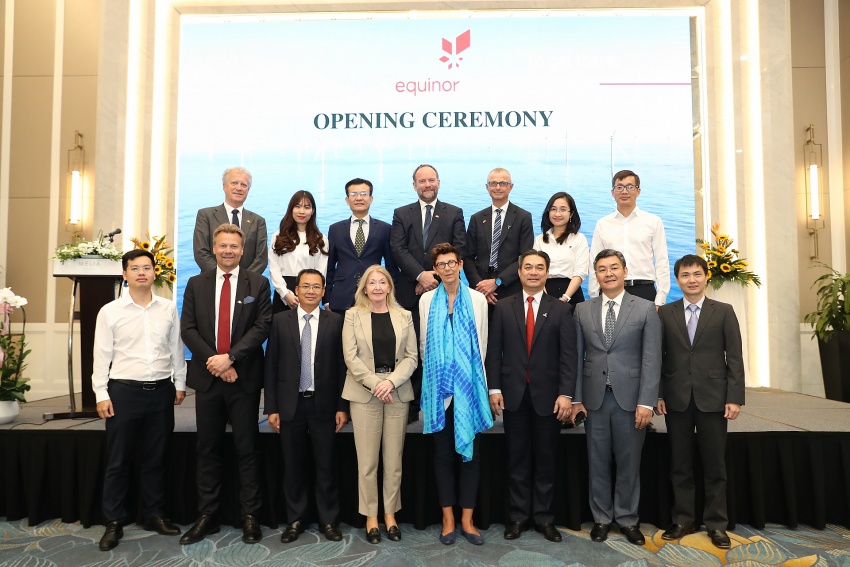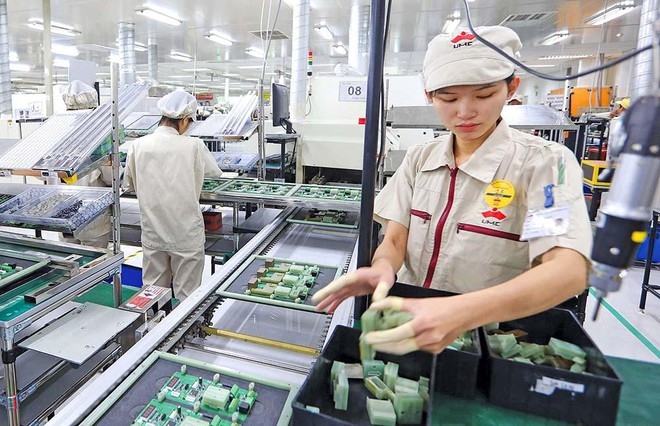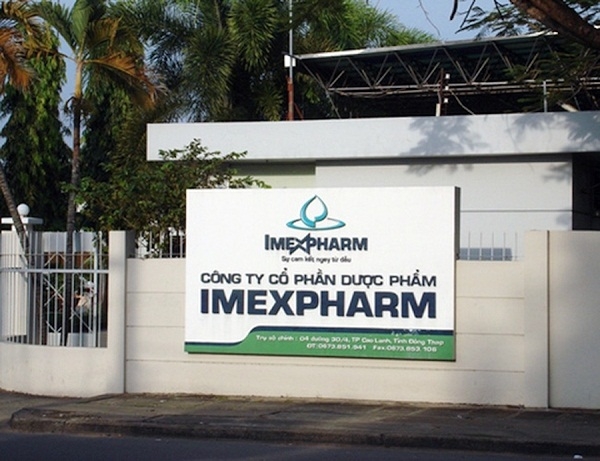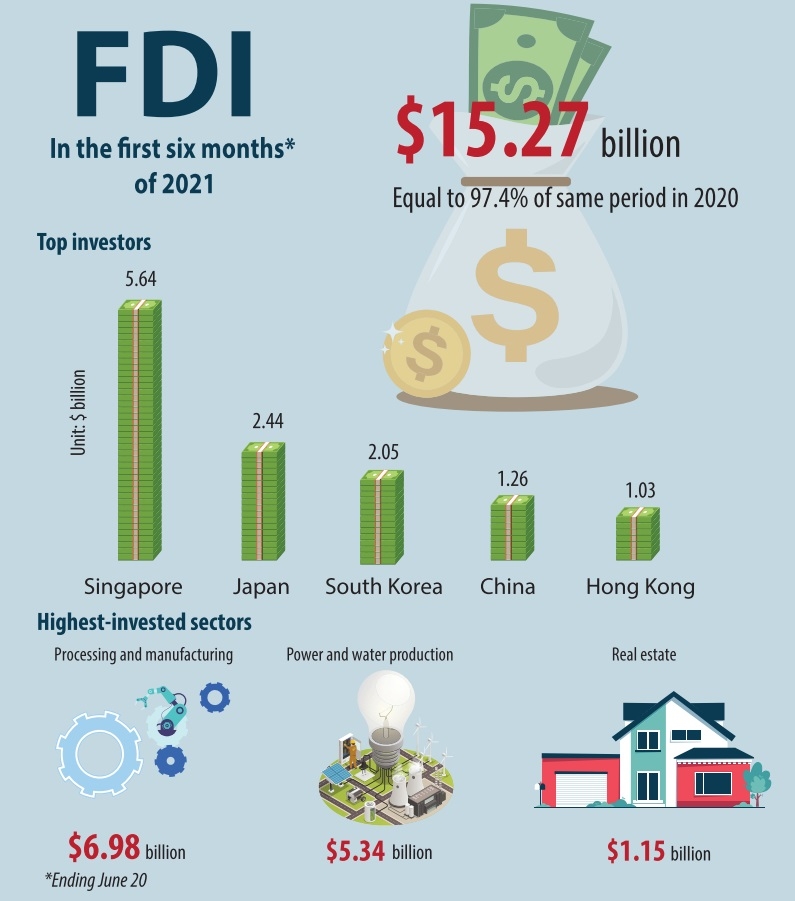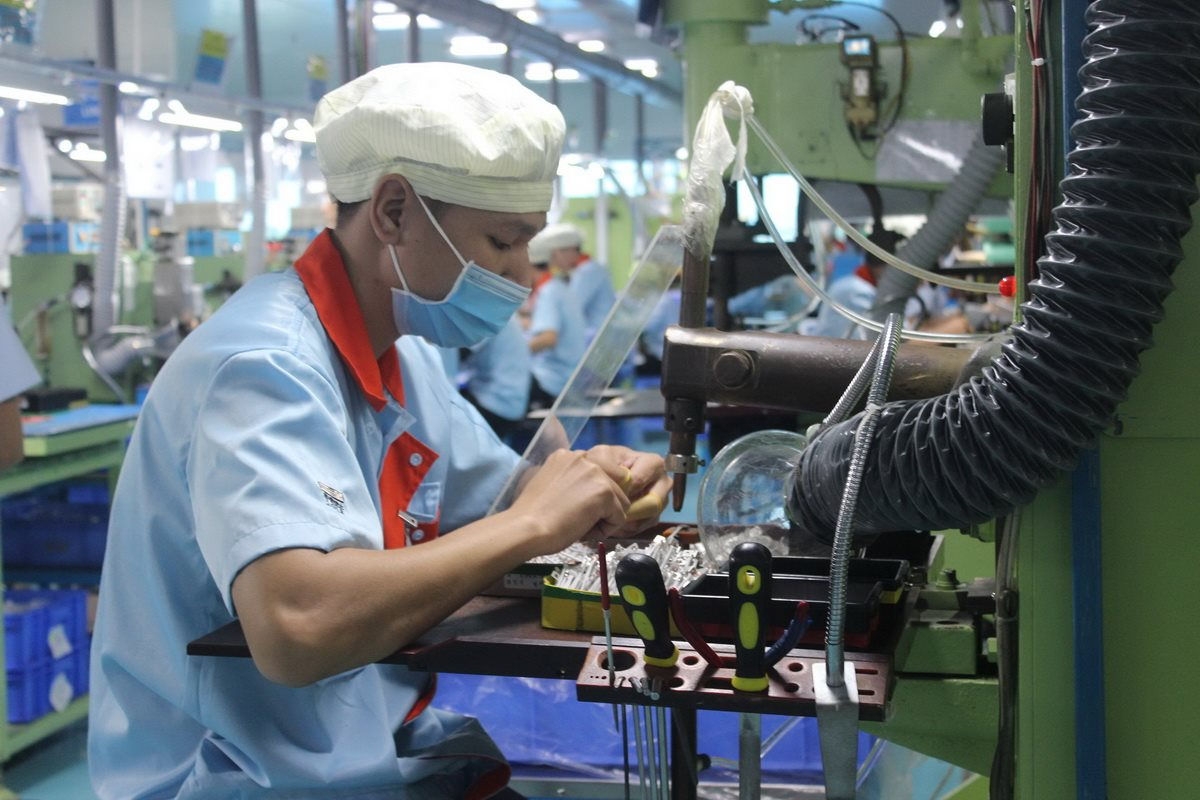JICA supports Mekong Delta to back development trajectory towards sustainability
VGP - The Japan International Cooperation Agency (JICA) stands ready to cooperate and contribute to growth and prosperity of the Mekong Delta Region (MDR), said Mr. Murooka Naomichi Senior Representative, JICA Viet Nam Office.
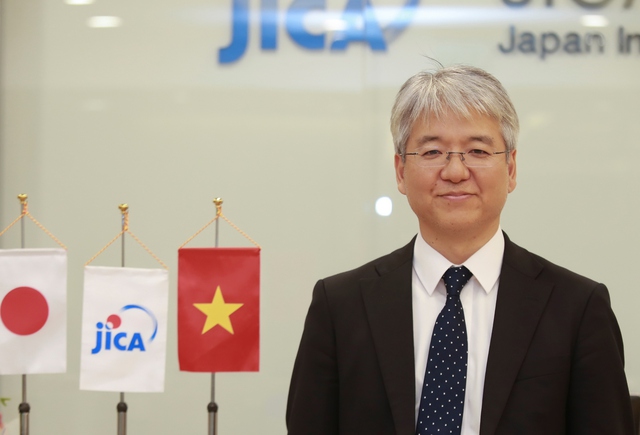
The JICA Senior Representative made the point on June 20 on the threshold of the Government's planning and investment promotion conference on the MDR, scheduled on June 21 in Can Tho City.
Vietnamese Deputy Prime Minister Le Van Thanh signed Decision 287/QD-TTg, dated February 28, 2022 approving the Mekong Delta planning scheme for the Mekong Delta region for the 2021 – 2030 period with vision towards 2050. This is the first regional planning scheme in accordance with the Law on Planning.
In your views what is the significance of the planning scheme which is expected to help the region to return sustainable development trajectory?
JICA Senior Representative: The plan would be an essential document for the region to define its development trajectory towards sustainability taking into consideration the climate change impacts, which are already happening, and affecting people' lives.
As I mentioned earlier, from August 2011 to April 2013, JICA supported MARD to formulate a Master Plan identifying priority projects in seven coastal provinces of MDR focusing on climate resilient agriculture.
Therefore, I think the Government of Viet Nam (GOV) has applied a suitable approach to make it as an integrated strategy with an emphasis on climate change resilience and most importantly a regional coordination among all delta provinces.
As you know, the Government of Japan (GOJ) has been very active in strengthening its partnership and policy dialogue with the Mekong Delta countries, and I believe that JICA's engagement in the region will contribute to the growth and prosperity of the region.
How JICA has supported and assisted Viet Nam in advancing the development of the MDR especially in response to climate change and saltwater intrusion?
JICA Senior Representative: MDR region exports 95% of rice, 70% of fruits, 75% of fisheries product of Viet Nam. Around 20 million people or 20% of population lives in MDR, contributing to 20% of GDP of Viet Nam.
MDR is one of the most important regions in Viet Nam in terms of both economic and environmental aspects.
However, salinity intrusion, draught, flood are becoming more and more sever due to climate change. Increased salinity causes high stress to animal, fishes, and agricultural plants. Some provinces are experiencing population decrease because of difficulties for living.
Recognizing the importance of MDR for the development of Viet Nam in general and recent increasing climate change risks in particular, JICA has been continuously implementing ODA projects in the region in various sectors, including transport, energy, agriculture, education, and climate change adaptation.
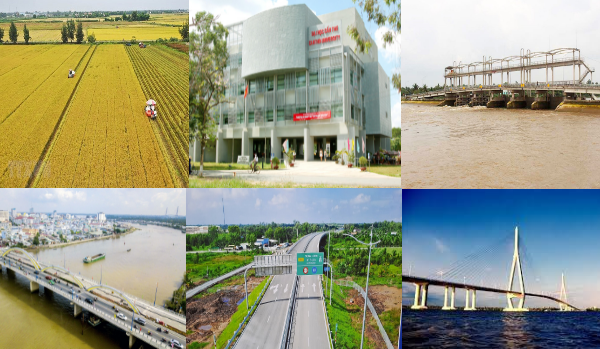 JICA's outstanding projects in Viet Nam
JICA's outstanding projects in Viet Nam
Below, I would like to focus on three sectors namely transport, education and climate resilient agriculture/ infrastructure which are our significant cooperation in MDR making substantial contributions for the development of the region.
In the transport sector, construction of Can Tho Bridge has drastically improved the accessibility of Can Tho City, the hub of the Mekong Delta, to the other regions, enhancing the potential for the regional development.
Our project on rehabilitation of 25 bridges along National Highway No.1 (from HCMC to Can Tho city) and the reconstruction of 104 weak bridges in ten provinces in MDR have contributed to social economic development by securing safe, smooth and reliable road network and improving the connectivity between urban and rural area, thereby addressing disparities in MDR.
In climate change adaptation, I would like to draw your attention to two long lasting cooperation, as our typical cooperation examples.
First example is our continuous cooperation with Can Tho University (CTU) for the past 50 years to enhance human resource development and research capacity in climate resilient agriculture and aquaculture. We are currently implementing a yen loan project and a technical cooperation project, in order to enhance research and educational capacity as well as human resources of CTU in climate resilient agriculture, aquaculture, and environment.
Regarding this, let me introduce a good example of how our support for joint researches at CTU can bring actual benefit to the society.
Takesho Foods and Ingredients Inc (Takesho) from Niigata Prefecture of Japan, collaborated with researchers of CTU in a joint research in 2018 under the yen loan project. As result of the joint research, Takesho established Takesho Foods Viet Nam (TFV) and opened its new food processing factory with a total investment of about 8 million USD in Tra Noc 2 industrial park in Can Tho City.
The successful outcome of the joint research with great support of the faculty members of CTU who had accumulated experiences in related research, and the extensive network between CTU and governments and enterprises in MDR had facilitated the investment of Takesho. TFV will create jobs and also provide internship opportunities for students of CTU, which finally contributes to the human resources development of the MDR.
The second example is the formulation of Master Plan in agriculture sector with Ministry of Agriculture and Rural Development (MARD) in 2013 (The Project for Climate Change Adaptation for Sustainable Agriculture and Rural Development in the Coastal Mekong Delta in Vietnam), through which we identified prioritized interventions/projects for enhancing climate adaptation capacity of the region. Selection of prioritized projects in Master Plan was followed by the Yen Loan Project on sluice gate construction in Ben Tre.
In the scope of the Ben Tre Project, we are supporting the construction of two gates for water intake from upstream of Ben Tre, where pure water will be secured for the people living downstream so that they can have a better and stable access to pure water for both daily life and agriculture activities. Specially, these sluice gates also help to control salinity intrusion.
Based on the discussion and agreement with MARD, we are introducing high civil engineering technologies and saline resistant materials, which are suitable for construction works in the extremely soft soil condition and affected by high salinity. It can help lengthen the project life cycle with less maintenance cost.
JICA is also considering to replicate the climate resilient infrastructure, like the one we do in Ben Tre, to other provinces to enhance climate adaptive capacity of Mekong Delta, thereby contributing to the improvement of the living condition of the people. We will keep discussing with MARD and key stakeholders in MDR.
Could you please inform JICA's orientations to support and cooperate with Viet Nam to materialize the regional planning scheme?
JICA Senior Representative: We acknowledge the importance of the Government's policy for the development of MDR, and therefore would like to advocate our support to the Government's efforts with both technical and financial cooperation.
In addition to the previous cooperation projects, JICA, together with other development partners, will sign on the Memorandum of Cooperation (MOC) with MPI at the launching ceremony of the Master Plan on June 21, where expression of interests for concrete financial cooperation in MDR will be confirmed.
JICA will consider our cooperation in road construction and widening in Can Tho City and Hau Giang Province.
These will not only strengthen the road network, but also enhance the connectivity among key centers in MDR, thereby contributing to the socio economic development of MDR. JICA expect that the GOV, especially MPI, will show its great leadership in accelerating the formulation of the projects and the approval process within the GOV in order for us to realize such projects in the earliest time.
Thank you!

